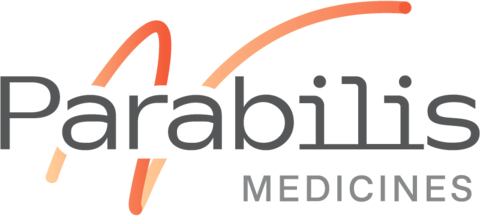Parabilis Medicines Reports Positive Proof-of-Mechanism Data for Groundbreaking ERG Degrader Program
Parabilis Medicines Reports Positive Proof-of-Mechanism Data for Groundbreaking ERG Degrader Program
- Potent degradation of the transcription factor ERG demonstrated across three mouse models of ERG-fusion prostate cancer, correlating with substantial tumor growth inhibition -
- First-in-class program is in late lead optimization -
CAMBRIDGE, Mass.--(BUSINESS WIRE)--Parabilis Medicines (formerly Fog Pharmaceuticals), a clinical-stage biopharmaceutical company committed to creating extraordinary medicines for people living with cancer, is presenting preclinical data demonstrating first-in-industry targeted degradation of ERG at the 2025 American Association for Cancer Research (AACR) Annual Meeting, which begins today in Chicago, Illinois.
ERG has been a long-recognized high-value target in prostate cancer, where ERG fusions have been implicated in 40-50% of all cases. In metastatic castrate-resistant prostate cancer (mCRPC) specifically, the TMPRSS2-ERG gene fusion is associated with more aggressive disease and may predict resistance to certain therapies, such as PARP inhibitors. However, ERG has been undruggable by conventional inhibitors or first-generation degraders because it lacks small molecule binding pockets.
Potent and specific degradation of ERG has been achieved with Helicon™ peptide degraders both in vitro and in vivo, leading to substantial tumor growth inhibition in multiple mouse models of prostate cancer. The data represent the first pharmacological proof-of-concept for ERG dependency in preclinical models of ERG-fusion prostate cancer.
“Parabilis’s Helicon peptide degraders have thrilling potential to expand the reach of targeted protein degradation to traditionally ‘undruggable’ targets,” said Mathai Mammen, M.D., Ph.D., Chairman and CEO of Parabilis Medicines. “These first compelling data from our ERG program validate our novel approach to degradation. The data also support the continued progress of our ERG degrader toward clinical trials, where it has the potential to be a meaningful therapeutic for patients with metastatic prostate cancer.”
Highlights of the data presented at AACR include:
- In mice implanted with prostate cancer cell-derived xenograft (CDX) tumors, administration of the ERG degrader produced >90% tumor ERG degradation through 7 days post dose. This corresponded to suppression of ERG’s downstream effects on target gene ARHGDIB.
- In both patient- and cell-line derived xenograft (PDX and CDX) models of TMPRSS2-ERG fusion prostate cancer, Parabilis’s ERG degrader significantly inhibited tumor growth.
- RNA sequencing expression analyses indicated that Parabilis’s ERG degrader downregulated Myc target genes.
Parabilis’s ERG degrader uses Helicon technology to bind directly to the ERG protein and, through its attached E3 ligand, directs the ERG protein to the ubiquitin-proteasome pathway for degradation. The company anticipates entering IND-enabling toxicology studies in 2025.
Parabilis’s prostate cancer franchise additionally includes a selective degrader of active androgen receptor (AR), which binds at a different site from approved drugs, and circumvents known resistance mechanisms that arise in response to AR antagonist therapies. Together, Parabilis’s degraders of ERG and AR could potentially provide novel therapeutic approaches for patients with mCRPC.
About Parabilis Medicines (Formerly Fog Pharmaceuticals)
Parabilis Medicines is a clinical-stage biopharmaceutical company dedicated to creating extraordinary medicines for people living with cancer. Through its Helicon discovery platform, Parabilis is engineering precisely tuned, stabilized helical peptide therapeutics that have the potential to unlock a large number of traditionally undruggable targets. This versatile platform enables applications for Helicons across three main areas: functional inhibitors of intracellular protein-protein interactions, targeted protein degraders, and targeted radiopharmaceuticals.
Parabilis is advancing a pipeline of first-in-class programs across these three domains, led by FOG-001, its clinical-stage β-cateninTCF4 inhibitor. Parabilis is headquartered in Cambridge, Mass., and is well-capitalized, with more than $500 million raised to date from leading life sciences investors. For more information, please visit: www.parabilismed.com
Contacts
Ten Bridge Communications
Lisa Raffensperger
lisa@tenbridgecommunications.com
